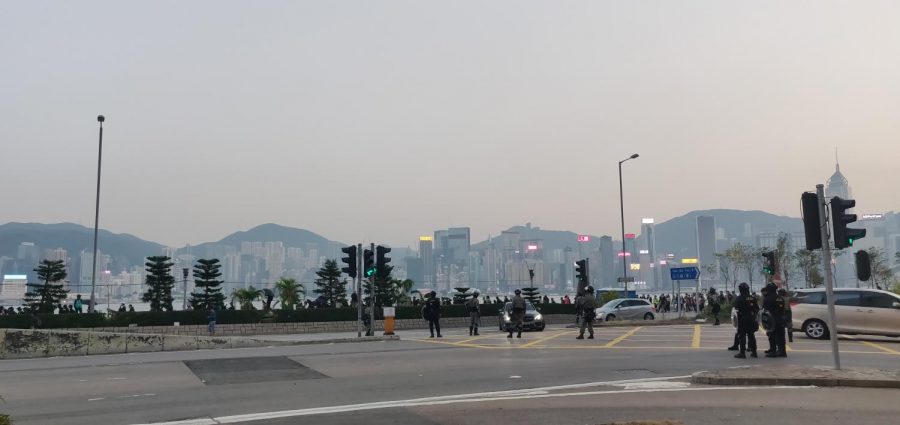China’s long history of oppressing the media is in full swing: Government using COVID-19 to force restrictions and rule over democracy proponents in Hong Kong
Hong Kong protests continue.
May 26, 2020
China has a long history of oppressing information, silencing journalists and expelling global coverage from independent media and reputable news organizations around the world.
But the Covid-19 crisis has reportedly ushered in the strongest restrictions yet, and have put into place restrictions that make it almost impossible to retrieve accurate global reporting and information on the ground. Soon after the Covid-19 outbreak and the spread of information of a global pandemic, China expelled American journalists as well as reporters from around the world.
The Chinese people have been forced to rely on state-run media, with strong government interests, for their news and information about the Covid-19 crisis.
The first coronavirus pandemic stories out of China were reported by independent journalists.
Journalists such as Fang Bin, Chen Quishi, and Li Zehua reported to the world the Coronavirus horrors straight from Wuhan, China in January and February 2020.
Their video reports showed stacks of body bags, long lines at crowded hospitals and deserted streets. It was not long before their reporting caught the ire of the Chinese government and all three reporters soon disappeared in early February along with any further reporting of the Coronavirus.
Zehua resurfaced in May, saying he was held for several weeks and is no longer actively reporting. The other two have not been heard from since, either by their families or on social media.
In another attack on journalism in the region, three Wall Street Journal reporters were thrown out of the country in February, as their Coronavirus reporting was clashing hard with the Chinese government’s version of the facts. China expelled a dozen more American reporters from the WSJ, NY Times, and Washington Post in March.
The Chinese regime reportedly persecuted the doctors who publicized the outbreak early on.
Dr. Ai Fen, the emergency department director at the Central Hospital of Wuhan, was reprimanded for sharing the first Coronavirus lab results. After she wrote on social media about efforts to silence her, Dr. Fen disappeared in early March.
Eight other doctors who sounded the alarm on the dire Coronavirus situation against the government’s wishes were arrested. One of those arrested, Dr. Li Wenliang, died from COVID-19 while the other seven remain missing.
It can be dangerous to speak out against the Chinese government.
Even the Chinese billionaire and Communist Party member Ren Zhiqiang was reportedly under arrest after speaking out against President Xi Jinping’s handling of the Coronavirus pandemic and his social media accounts were shut down.
Soon after Zhiqiang’s remarks, the Chinese government raised their Covid-19 death total nearly 50% overnight to 4632.
The total of 3342 had been stagnant for weeks. It has since stagnated again at 4632 for weeks unlike the fast-moving and ever-changing Coronavirus death totals worldwide.
The Chinese government is also reportedly using the Covid-19 crisis to clamp down further on Hong Kong’s freedoms.
Beijing-backed authorities arrested 15 Hong Kong pro-democracy leaders in April including Jimmy Lai, the publisher of Apple Daily, a pro-democracy newspaper.
These arrests were condemned by dozens of countries including the United States.
Finally, the Uighur Muslims in the northern Chinese province of Xinjiang, a million of whom were already forced into re-education camps to change their allegiance from Islam to the Chinese state, have found their situation going from bad to worse, with strict Coronavirus quarantines furthering the government policy of separating families, including separating children from their parents.


